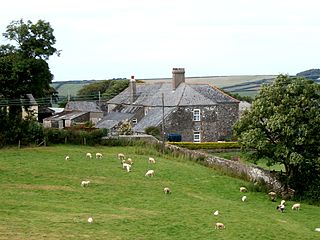This page is based on this
Wikipedia article Text is available under the
CC BY-SA 4.0 license; additional terms may apply.
Images, videos and audio are available under their respective licenses.
Inquests in England and Wales are held into sudden and unexplained deaths and also into the circumstances of discovery of a certain class of valuable artefacts known as "treasure trove". In England and Wales, inquests are the responsibility of a coroner, who operates under the jurisdiction of the Coroners and Justice Act 2009.

Simony is the act of selling church offices and roles. It is named after Simon Magus, who is described in the Acts of the Apostles 8:9–24 as having offered two disciples of Jesus, Peter and John, payment in exchange for their empowering him to impart the power of the Holy Spirit to anyone on whom he would place his hands. The term extends to other forms of trafficking for money in "spiritual things." Simony was one of the important issues during the Investiture Controversy.

Hardinge Stanley Giffard, 1st Earl of Halsbury, PC QC later KC was a British lawyer and Conservative politician. He served three times as Lord Chancellor of Great Britain, for a total of seventeen years.
LexisNexis Quicklaw is a Canadian electronic legal research database that provides court decisions from all levels, news reports, provincial and federal statutes, journals, and other legal commentary. It also offers a case citator and case digests.
In 2002 Quicklaw was purchased by LexisNexis and is now a subsidiary of LexisNexis Canada.
Criminal libel is a legal term, of English origin, which may be used with one of two distinct meanings, in those common law jurisdictions where it is still used.
Contempt of the Sovereign was an ancient doctrine in English law dating from medieval times, and now obsolete. It referred to the notion that if somebody disobeyed an Act of Parliament, but the Act did not say what the penalty was or how the Act was to be enforced, then that person was guilty of a criminal offence under common law. This doctrine was based on the idea that an Act of Parliament was an expression of the Sovereign's will, enacted with the "advice and consent" of Parliament. In modern legislation and jurisprudence it has become the rule that contravening a statute is not a crime unless the statute expressly says so in clear terms, and so the doctrine has long since lapsed. However the law does still exist, and the last time it was used was in 1840.
Halsbury's Statutes of England and Wales provides updated texts of every Public General Act of the Parliament of the United Kingdom, Measure of the Welsh Assembly, or Church of England Measure currently in force in England and Wales, as well as a number of private and local Acts, with detailed annotations to each section and Schedule of each Act. It incorporates the effects of new Acts of Parliament and secondary legislation into existing legislation to provide a consolidated "as amended" text of the current statute book.

Parkham is a small village, civil parish and former manor situated 5 miles south-west of the town of Bideford in north Devon, England. The parish, which lies within the Kenwith ward in the Torridge district, is surrounded clockwise from the north by the parishes of Alwington, Littleham, Buckland Brewer, East Putford and Woolfardisworthy. In 2001 its population was 742, compared to 786 in 1901.
Halsbury’s Statutory Instruments is the standard work of authority on delegated legislation in England and Wales. It is one of the major legal works published by LexisNexis Butterworths. Primarily used by legal practitioners and law students, it provides details of every statutory instrument of general application currently in force in England and Wales, either in full text of as an authoritative summary.
Refusing to assist a constable is an offence under the common law of England and Wales. The offence is committed if a person refuses, without lawful excuse, to assist a constable who sees a breach of the peace committed or who is assaulted or obstructed when making an arrest, and who, where there is reasonable necessity to do so, calls upon that person to assist him. As a common law offence, it is punishable with an unlimited fine and imprisonment, although it is very rarely prosecuted.
Personation of a juror is a common law offence in England and Wales, where a person impersonates a juror in a civil or criminal trial. As a common law offence it is punishable by unlimited imprisonment and/or an unlimited fine. Personation of a juror also constitutes a contempt of court.
Statutes in Force was the fourth revised edition of the statutes. Publication began in 1972. It was completed in 1981.
Prevention of the lawful and decent burial of a dead body is an offence under the common law of the United Kingdom. The offence is infrequently charged. As a common law offence, it is trialable only on indictment and can be punished by a maximum sentence of life imprisonment, an unlimited fine or both.
Disposal of a corpse with intent to obstruct or prevent a coroner's inquest is an offence under the common law of England and Wales. The offence is currently very rarely charged. As a common law offence, it is tried on indictment and can be punished by an unlimited fine and/or period of imprisonment.
Halsbury's Laws of Canada is an encyclopedia of the laws of Canada based on the model of Halsbury's Laws of England.
Halsbury's Laws of Hong Kong is an encyclopaedia on the laws of Hong Kong based on the model of the Halsbury's Laws of England and is currently the only encyclopaedic legal work in Hong Kong. It covers 80 subject areas and is written prominent Hong Kong's leading experts.



